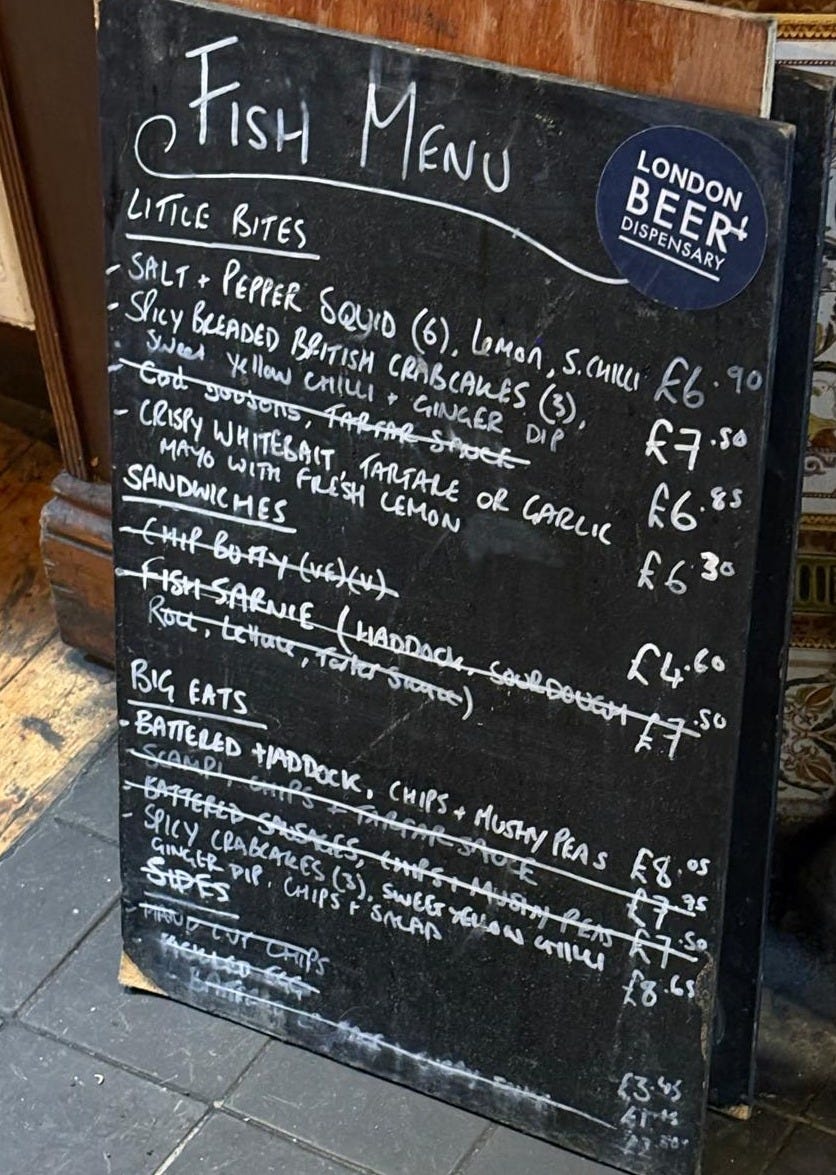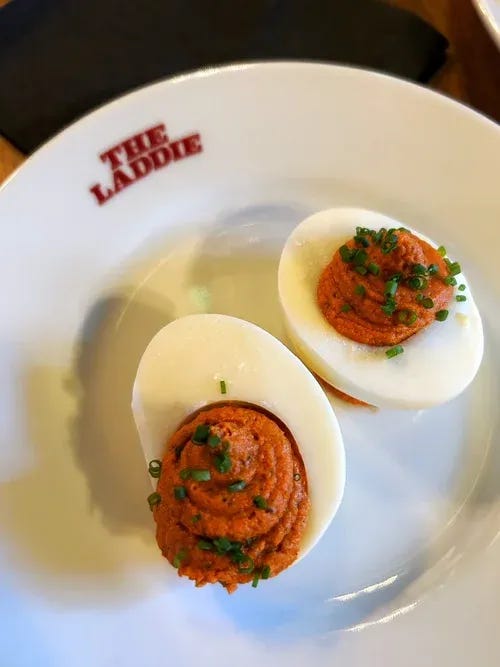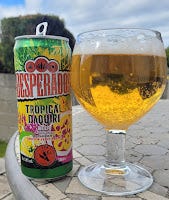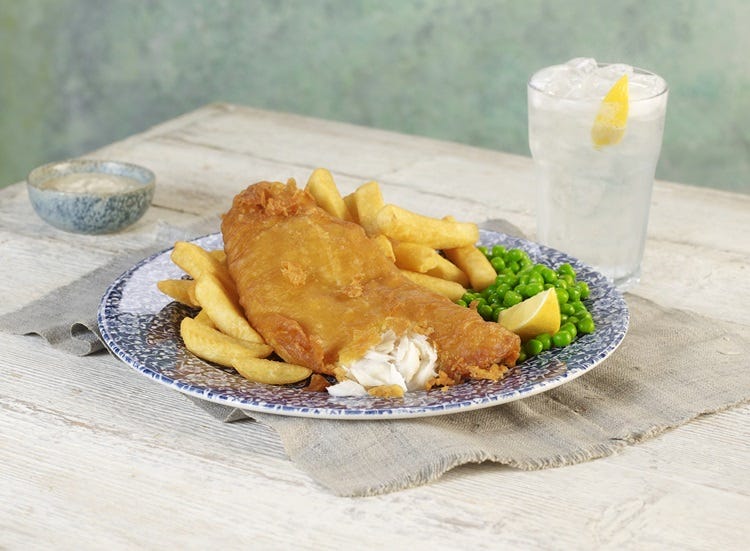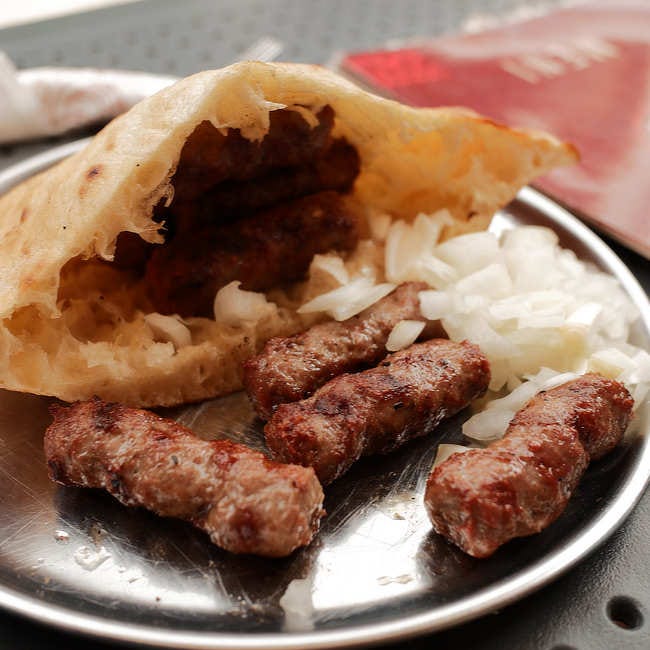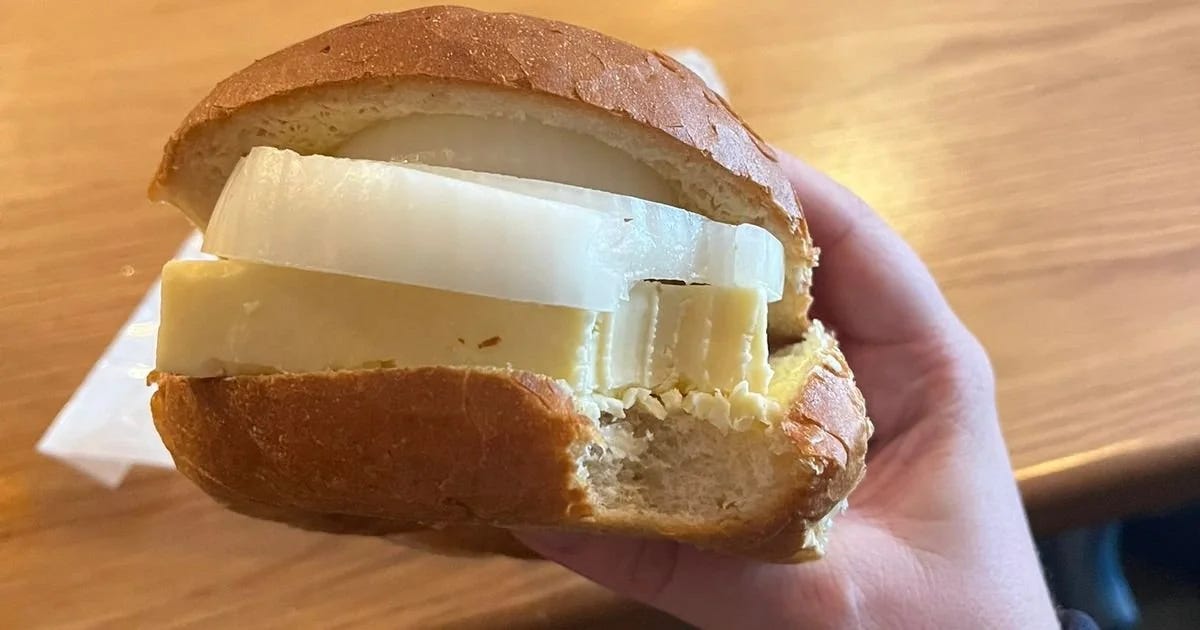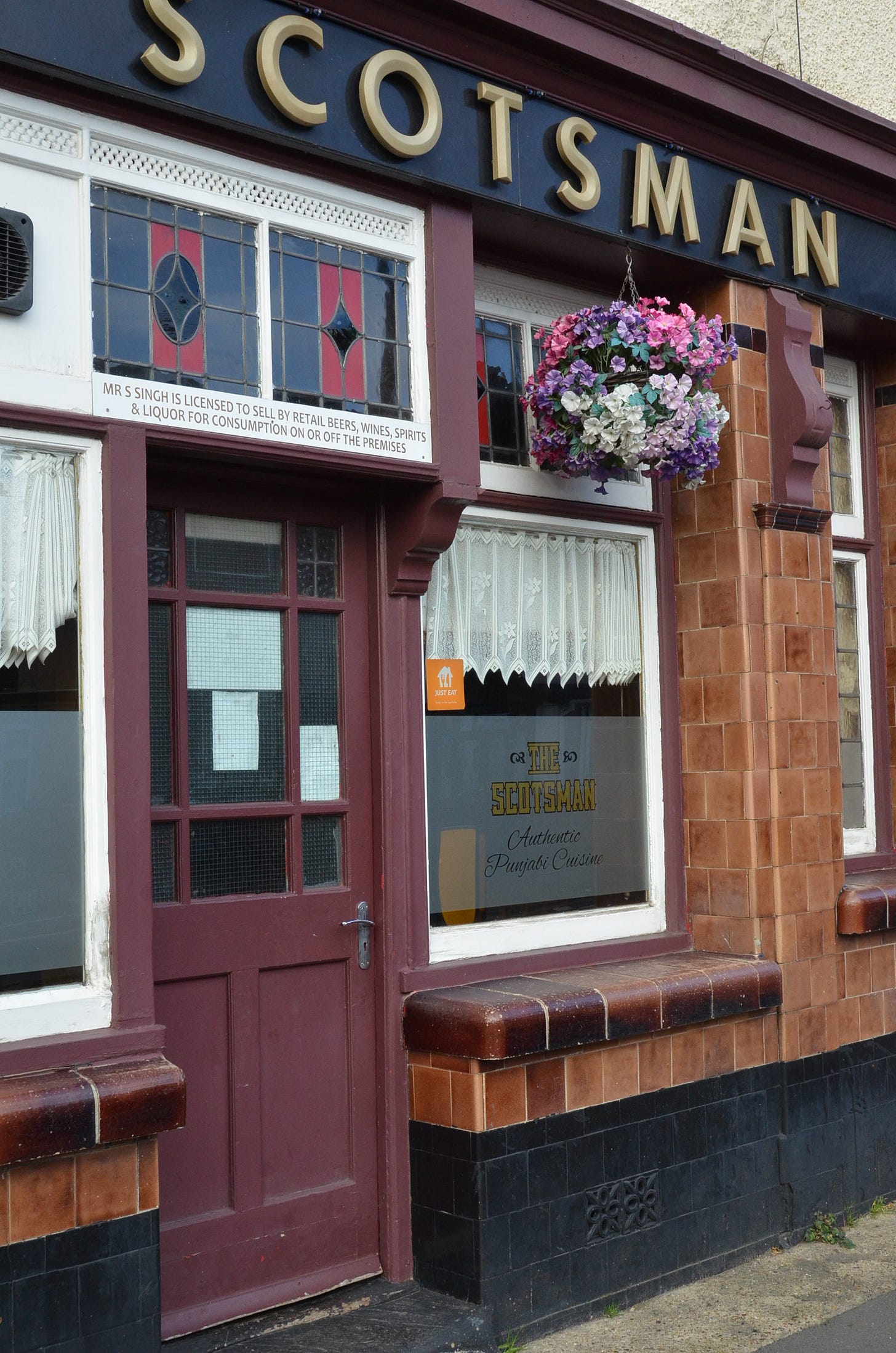The Session #149: pub food round-up
From fish 'n' chips to pies and pretzels, writers have their say on food in pubs
Desi Food Guide is available to paid subscribers for £5/month or £50/year. If you want a taste of what to expect the first four posts can be read for free here.
Today’s Substack is ‘free to air’ - like Test cricket and Premier League football should be - so that the people who have contributed can gain the widest readership possible. (Also a desi publican I was going to interview suffered a bad injury and had to postpone. He’s fine, though, and I’ll be bringing his story soon.)
On July 11, I asked various participants to write a blog, web post, newsletter (like this one) or even a SM thread on the subject of food in pubs. I’ve rounded up their work and at the bottom have written about the dangers of being a go-to voice on pub food.
The idea of me getting involved in the Session #149 was because I read Alan McLeod’s blog on a regular basis and he champions writers who may have (yet) found a large audience.
He lives in Canada and his contribution is about his country and how pubs approach food.
“In large swaths of Canada there is still a distance between good beer and good food. Sure there are bright spots. The taverns of my Nova Scotian youth still seem to offer local offerings like steamed mussels or boiled dinner instead of french fries or a burger as a snack. And, pre-pandemic, some craft beer bars did move to adding a better sort of food service like a BBQ smoker, maybe on a trailer out in the parking lot. But these are not necessarily cheaper options. Not what I think of as pub food.”
Pudding: Here’s Alan on the previous session - the subject then was pub quizzes.
It’s interesting that Alan’s contribution shows there’s an expectation that pub food should be cheap. This affordability is something that Joey Leskin mirrors in this blogpost and how difficult it is to find decent fish and chips in London pubs. This piece draws on his connections with a former pub staple that has been hit post-Pandemic.
“Thanks to the Dutch Sephardic Jews (shoutout great-great-great-grandma) who brought over the concept of fried fish in the 18th and 19th century and the Belgians who brought over chips at around the same time, accidentally building us the most ‘British’ of meals”
Pudding: Leskin also wrote this excellent piece for Pellicle on the emergence of independent beer in Thailand.
As a former Leeds local I was happy to see Matt Curtis write about the Highland Laddie. During this excellent portrait Matt hints at how the battle between gastropub v proper pub can polarise drinkers and eaters.
“But how much is this a proper pub as much as it is a restaurant, or dare I say it, a gastropub? Is it designed for someone who wants to pop in for a couple of pints after work? Or is it a space made for three-hour sit down meals where food takes precedence over drinking? I’m keen to find out who, exactly, the Highland Laddie is actually for.”
Pudding: Matt lives in Manchester but he grew up in Lincoln and he writes about the cathedral city here.
We’ve had fish and chips, so on to another ‘British’ classic: pies. John Porter has his definition which he went to war over when he was Publican Food Editor:
“Sadly, though, what arrived was not, by my definition, a pie. It was a small casserole dish containing the filling as described, but with just a bit of puff pastry floating on top. That, in a phrase I first coined around 20 years ago, isn’t a pie. It’s just stew with a crouton.”
And there’s also Chris Griffiths on pies (and more) here.
“The local variations added to the interest. Hot or cold, pork or beef, standing alone or with peas and/or gravy (and back in the Black Country, make that grey peas). Quality varied: some pubs were proud of their connections with local butchers, others offered branded pies. A Holland’s pie from Baxenden, anyone?”
Pudding: Porter on beer market restrictions
The Beer Nut is being modest when he messaged telling me he’s failed the assignment. In fact, he details pizza in a Dublin restaurant which serves great beer.
“Authentic Irish pub food is the toastie and the bag of crisps, and I'm not much of a consumer of either. So I'm flipping the topic. Instead of pubs and food, I'm doing a restaurant with beer. I would say that restaurants with good beer are probably more common than pubs with good food.”
Pudding: This from the Beer Nut on Desperados is very entertaining.
Alex on Substack tells me he isn’t a fan of chips in pubs (!) but Katie Mather is and I wholly agree with her love of the ones flash fried in Spoons.
“A person can talk shit about Wetherspoons all day, and I will join in, but their chips have always been godly, the best of all the frozen chips. I am certain they are coated in semolina for extra crunch, leaving the centres fluffy and light.”
Pudding: Katie on gastropubs
Chips. Fish and chips. Pies. How about Pretzels? Lisa Grimm wants you to hear her out on this.
“They can be parbaked and frozen, and warmed up in a relatively smallish toaster oven or even a microwave. They are the perfect salty snack, with enough heft to nearly be a meal – ideal to keep punters in the pub, while also keeping them from getting, well, messy. And here in Ireland, they could be paired with some absolutely phenomenal local cheeses, or even cheese dips.”
Pudding: Lisa on the Swift
I don’t know if pretzels count as junk but Boak and Bailey wonder where the quality has gone in this pub food category. They also ask ‘why is it that so many cultures have the perfect snacks to go with beer but absolutely refuse to sell them in pubs?’
“Across the border into Bosnia we enjoyed the similar but different ćevapi [pic below]. It’s the simplest dish imaginable – skinless sausages, flatbread, sliced white onion – but the secret ingredients are (a) bicarbonate of soda and (b) time. The bicarb somehow makes the meat bouncier and more satisfying, after at least 12 hours sitting in a fridge before cooking.”
PS: There was also an excellent comment on the Taiwanese brew pub chain Zhang Men.
Pudding: Whenever I feel sad I read B&B’s review of my book Desi Pubs.
Laura Hadland writes about many dishes in this post including orange chips and a samosa - which sounds like the best pub food combo so far.
“Speaking of Leicester, any conversation about pub food has got to include a gratuitous picture of the cheese and onion cobs at the Blue Boar in the centre of the city. They were, and are, the originators of the doorstop cheese cob in my opinion. The first to go viral and rightly the benchmark ever since.”
Pudding: Laura on sexist tropes
And, finally a bit of literature. Liam K at Irish Beer History has a short story on the subject of pub food and it’s gripping.
“Seamie carefully cut the sandwich in half and watched the cheese ooze out from the edge. There were lads that would eulogise about a pint of stout but surely a decent sandwich deserved some special words too?”
Pudding: Liam on Good Green Beer
Thank you for all that contributed and hopefully I’ve not missed anyone!
UPDATE: I have missed someone. Blame Bluesky being poor for hashtags!
The Minister for Food and Drink on how good food and good beer don’t usually go together.
“Good food and good beer does happen from time to time. Independent village pubs seem to be the bastions of this. We’ve camped near some over the years, like the Church House in Sutton, or the Lazy Trout in Meerbrook. These generally independent pubs just seem to have a knack for making decent food and looking after decent beer from local brewers. Both of them happen to be dog friendly too!”
Am I an expert on pub food?
I have to turn down a lot of interview requests. This is from bitter experience of being used as a source for articles and filmed content when I see the end result and belatedly realised I disagreed with the agenda used.
While I try to be led by the sources in articles I write, others start with a proposition I find, well, preposterous. Most common is ‘can desi pubs save the pub industry?’ and I’ll explore why this should be ridiculed through the case study of Desi Palace in Harrow.
Raj opened up this north north London after being given a 0% business rate because he was Asian, despite the footfall expected in an area where many had a large disposable income. With soaring energy prices he faced an issue of how to pay to keep the charcoal grill and tandoors alight but one call and a mere mention of his surname - Singh - led OVO to reduce his bill by half.
He wondered, though, how he could pay his staff in the day when the National Insurance change made his overheads so expensive but then he read about the current Government’s Desi Pub NI Allowance and realised he could operate 12 hours a day seven days a week.
(Finding staff isn’t an issue too because any desi pub is in the jurisdiction of the Euro, an amendment tabled after a few rightwing MPs attended a series of curry awards and started empathising with the plight of the Indian diaspora.)
Raj then went to his local cash and carry and found all the produce that he needed reduced because any ingredient used in Indian cooking from tomatoes to onions to spices - even flour - has been ring fenced to protect it against inflation rises.
He thought about stocking craft beer but Cobra being a brand setup by desis Karan Bilimoria and Arjun Reddy (although brewed now in Burton upon Trent by Molson Coors) is exempt from taxation and offers a huge profit compared to other macro lagers.
All this means that a mixed grill piled high with meats can be sold at £15 for a huge profit. With a pint washed down at a lot less than a Spoons.
By now you should get my point: Raj doesn’t exist but if he did his desi pub is as likely to struggle as any.
The worrying thing is sometimes this type of proposed article comes from an Indian publication - despite me pitching an article as a journalist and - dare I say - expert. But this should be no surprise - as India’s middle class grows, so does their misunderstanding of what the real British-Indian experience is.
Actual desi pubs - the ones originally set up so that brown people have a sanctuary against racism and segregation as opposed to a restaurant marketing itself as a posh pub - are mixed class spaces, like pubs should be. And these are the pubs - often in large buildings - that face very similar economic headwinds to all pubs.
So if you see an article on desi pubs or video and wonder why I’m not quoted then you know why.
None of this makes me an expert on pub food, though. I have only one strong opinion: we should all be able to afford to eat in pubs where the kitchen staff are paid a fair wage.


